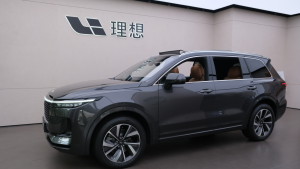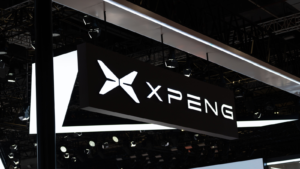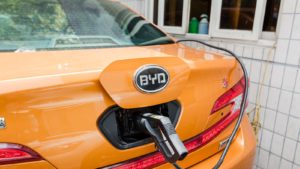
Best EV stocks and related subjects are receiving immense attention due to the secular growth in the electric car market, which is projected to reach $951.9 billion by 2030 from $388.1 billion.
China sets ambitious sales targets and spends extensively on EV infrastructure; hence, it is a main player in the development of this industry.
With 46.7% of total vehicle sales in China in May, a new monthly high, sales of new energy vehicles—including EVs and plug-in hybrids—accounted for a significant portion. Moreover, Chinese EV manufacturers revealed record deliveries in June.
In 2023, new energy vehicles accounted for 32% of sales. This objective grows yearly; by 2030, it will be 40%; by 2035, it will be 50%. China’s bigger strategy aims for these goals as part of achieving peak carbon dioxide emissions by 2030 and carbon neutrality by 2060. Tax exemptions for purchases also reduce the cost of owning an electric car, negating the 10% purchase tax.
China also intends to create a network of charging stations sufficient to run over 20 million electric cars by 2025.
All these elements will help an investor discover several of the greatest EV stocks in the Chinese market, a fantastic spot to start investing in this field.
Li Auto (LI)

Li Auto (NASDAQ:LI) delivered 35,020 cars in May, up 23.8% year over year. So far, 774,571 vehicles have been delivered. The company concentrated on the Li L6, which has sold about 15,000 units since April.
Moreover, Li Auto and Nvidia’s (NASDAQ:NVDA) future electric car fleets will use DRIVE Thor centralized vehicle computers. This strategy should improve vehicle performance and autonomous driving capability.
Li Auto’s most recent Li L7 and L8 Air models feature improved coil springs and CDC dampers. The RMB 301,800 and RMB 321,800 variants are RMB 18,000 cheaper than previous versions. This pricing strategy will enable Li Auto to make its autos more fairly affordable.
However, Li Auto encountered more challenging pricing than projected, albeit beginning in 2024 with tremendous enthusiasm. This has modified its financial outlook and produced a cautious Q2 prediction, with expected car deliveries falling between 105,000 and 110,000.
Bank of America (NYSE:BAC) dropped Li Auto’s price estimate for shares to $36 from $41, highlighting the company’s intentional price reductions. These reductions are meant to boost the customer base but inevitably lead to margin erosion.
Li Auto is reportedly laying off employees at an above-average 18% rate. These elements led to a steep selloff of 44% this year; analysts are projecting an 81% potential upside from the current price.
XPeng (XPEV)

XPeng (NYSE:XPEV) delivered 10,146 automobiles in May 2024, 35% more than in the same month last year. The X9 model is still leading its class in China, so it’s no surprise that analysts project a 52% upside for XPEV.
At its AI Day event in May, XPeng unveiled XOS 5.1.0, an artificial intelligence-powered in-car operational system. This includes the first artificial intelligence valet driver, emphasizing XPeng’s leadership in automotive artificial intelligence technology.
For XPeng, introducing AI-powered driving assistance systems marks a significant technological advancement toward the third quarter of 2024 total national road coverage.
A master agreement between XPeng and Volkswagen (OTCMKTS:VWAGY) will allow them to co-develop intelligent connected automobiles (ICVs). Using XPeng’s G9 platform and software technologies, the deal seeks to co-develop two B-class battery electric vehicle (BEV) models for the Chinese market. Starting in 2026 is production.
The two firms will also participate in a Joint Sourcing Program for shared automotive components to increase their competitiveness and save costs.
From 2026, Volkswagen’s China Main Platform vehicles will include XPeng’s existing E/E Architecture, hence boosting their technological and cost competitiveness.
BYD (BYDDF)

Rising to dominate the market and surpassing Tesla (NASDAQ:TSLA), BYD (OTCMKTS:BYDDF) sold 1.2713 million new energy cars in China in the first five months of 2024.
Furthermore, BYD disclosed plans for a second European plant despite the slowing down of the EV sector. This effort aims to increase its profile in the European market and counteract any impact of more levies on Chinese electric cars.
Their first plug-in hybrid pickup truck is the BYD Shark. This automobile has an over 500-mile range and 5.7-second acceleration from 0 to 62 mph, so it is under BYD’s strategy. The Shark will help make its fleet more appealing to a bigger market.
Furthermore, the corporation’s Integrated Vehicle Intelligence strategy and the self-developed XUANJI Architecture were shown at the BYD Dream Day 2024 event. This technology integrates strong artificial intelligence with electricity to increase vehicle safety, comfort, and general intelligence. BYD also displayed the first vehicle-integrated unmanned aircraft system among numerous cutting-edge innovations.
In June, BYD introduced its third EV model in Japan as part of its worldwide development projects. This effort aims to make BYD more prominent in global markets and compete with other major manufacturers of electric automobiles.
Finally, BYD’s $138 million showcase dominated the 2024 Shenzhen Auto Show. New models like the BYD Seal 06 and Qin L DM-i were shown, and the first major public demonstration of floating driving technology worldwide.
On the date of publication, Faizan Farooque did not have (either directly or indirectly) any positions in the securities mentioned in this article. The opinions expressed in this article are those of the writer, subject to the InvestorPlace.com Publishing Guidelines.
On the date of publication, the responsible editor did not have (either directly or
indirectly) any positions in the securities mentioned in this article.




